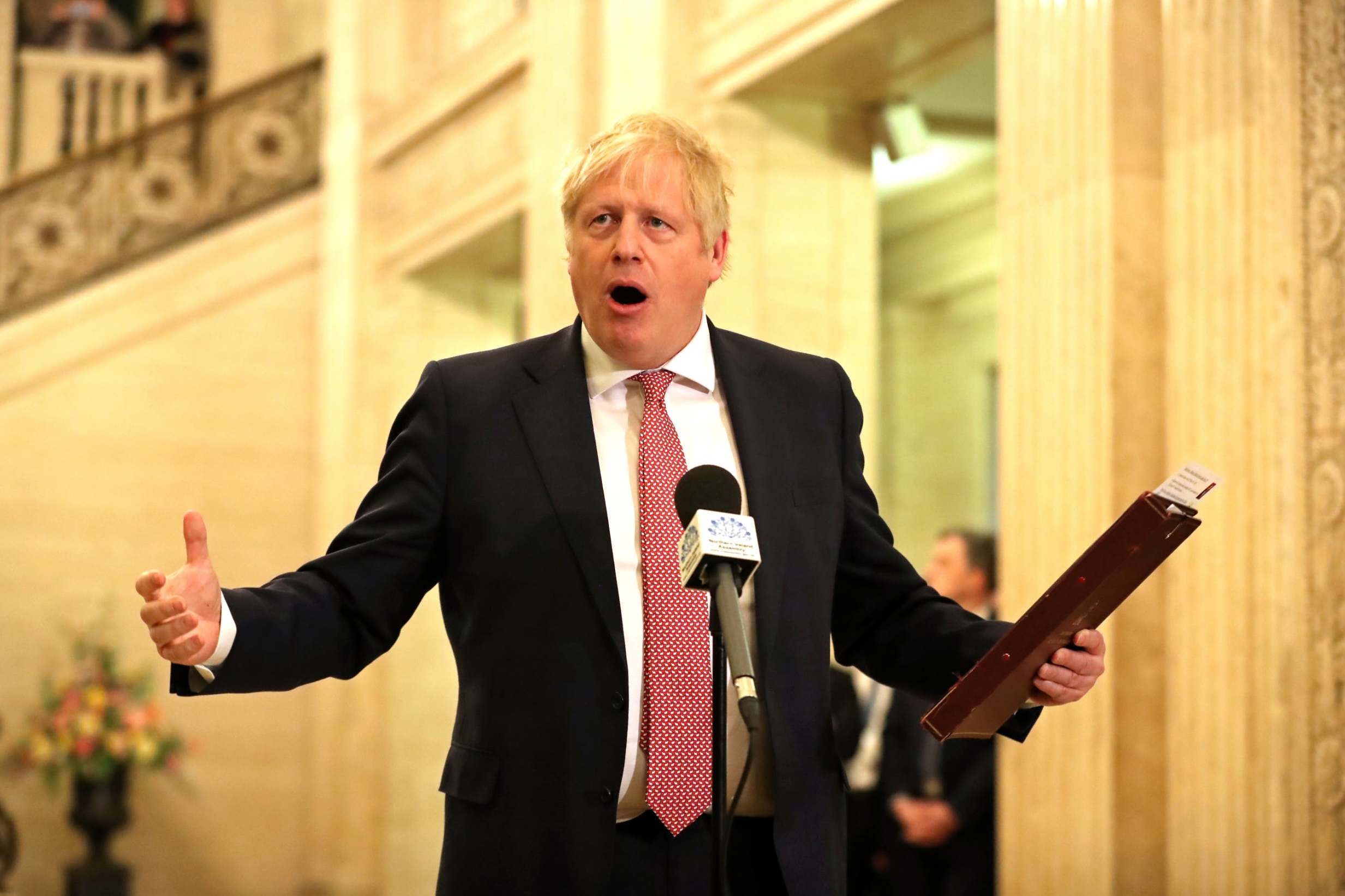Is Boris Johnson’s honeymoon period as prime minister coming to an end?
Concerns over the deal to restore power-sharing at Stormont could spark the first Tory rebellion against the new government, writes Benjamin Kentish


It did not take long for Boris Johnson’s honeymoon period to come under threat. Just a month after the general election, the prime minister is facing anger from his own backbenchers over two seemingly contradictory promises on Northern Ireland.
On the one hand, the deal struck last week to restore power-sharing at the Stormont Assembly includes a promise to establish an investigations team to look into unsolved murders during the Troubles.
On the other, the Conservative manifesto promised that the party would “introduce new legislation to tackle the vexatious legal claims” against current and former members of the armed forces.
Some Tories have pointed out that establishing a new investigations team will make it significantly harder for this to be achieved.
Specifically, the deal to restore the Northern Irish government included a promise that the UK and the Irish governments would provide funding to implement the 2014 Stormont House agreement.
Under the terms of that deal, which was agreed between the UK and Irish governments and the Northern Irish parties, a Historic Investigations Unit (HIU) will be established “to take forward investigations into outstanding Troubles-related deaths”.
The unit, which will be run by police and have full policing powers, will investigate cases that were unsolved by previous investigations. Families will also be able to apply for cases to be reopened if new evidence has since come to light.
The prospect of fresh investigations into former British forces personnel sparked concern among some Tory MPs and paved the way for a row between Conservative backbenchers and the government.
Former Tory leader Iain Duncan Smith said: “Downing Street has promised to do something about this and they need to do something about it.
“What we can’t have until now is prosecutors going on a vexatious fishing expedition and arresting veterans and putting them through the mill.
“If they’re going to legislate they need to in double-quick time. It needs to make sure that either you have enough evidence to merit a court case or you leave it alone.”
Fellow Brexiteer Mark Francois, a former armed forces minister, said: “The government promised in its manifesto to legislate to defend veterans from malicious prosecutions and it would be completely unacceptable if the desire of Northern Ireland Office officials to re-establish the executive led to selling our veterans down the river in some Faustian pact.
“We must defend those who defended us.”
If the government is to find a way to juggle both promises, it appears that the devil will be in the detail – and the timing. The deal to restore power-sharing in Northern Ireland says that the HIU will be established within 100 days. And under the terms of the Stormont House agreement, the unit is expected to conclude its processes within five years.
By contrast, and as Johnson’s official spokesperson admitted on Monday, there is currently no timetable for introducing the legislation on “vexatious claims”. That raises the prospect that this could follow at a much later date – possibly after the HIU has concluded most of it work.
Alternatively, the legislation promised by the Tories could adopt a narrow definition of “vexatious” that would ensure the law did not interfere with the work of the HIU.
Johnson hinted at this on Monday when, speaking at the Stormont Assembly, he suggested that the HIU would not consider cases where “no new evidence” had been provided.
In a bid to offset a Tory backlash, he said: “We will certainly be going forward as a UK government with our manifesto commitment that you will recollect to ensure that there will be no unfair prosecutions of people who served their country where there is no new evidence to bring forward, and I think that is the right balance to be struck.
Johnny Mercer, the veterans minister, later insisted that the government was “totally committed to what the prime minister has said previously about ending vexatious prosecutions of our troops where there is no new evidence”.
No 10 is likely to be able to find a way to juggle the two demands in order to defuse the potential row. However, the issue is a sign of things to come.
There are a number of major issues – including Brexit, social care, taxation and public spending – where Johnson could well find himself on a collision course with his own MPs in the coming years.
While he will probably manage to navigate a way through on Northern Ireland, it may not always prove so easy.
Join our commenting forum
Join thought-provoking conversations, follow other Independent readers and see their replies
Comments